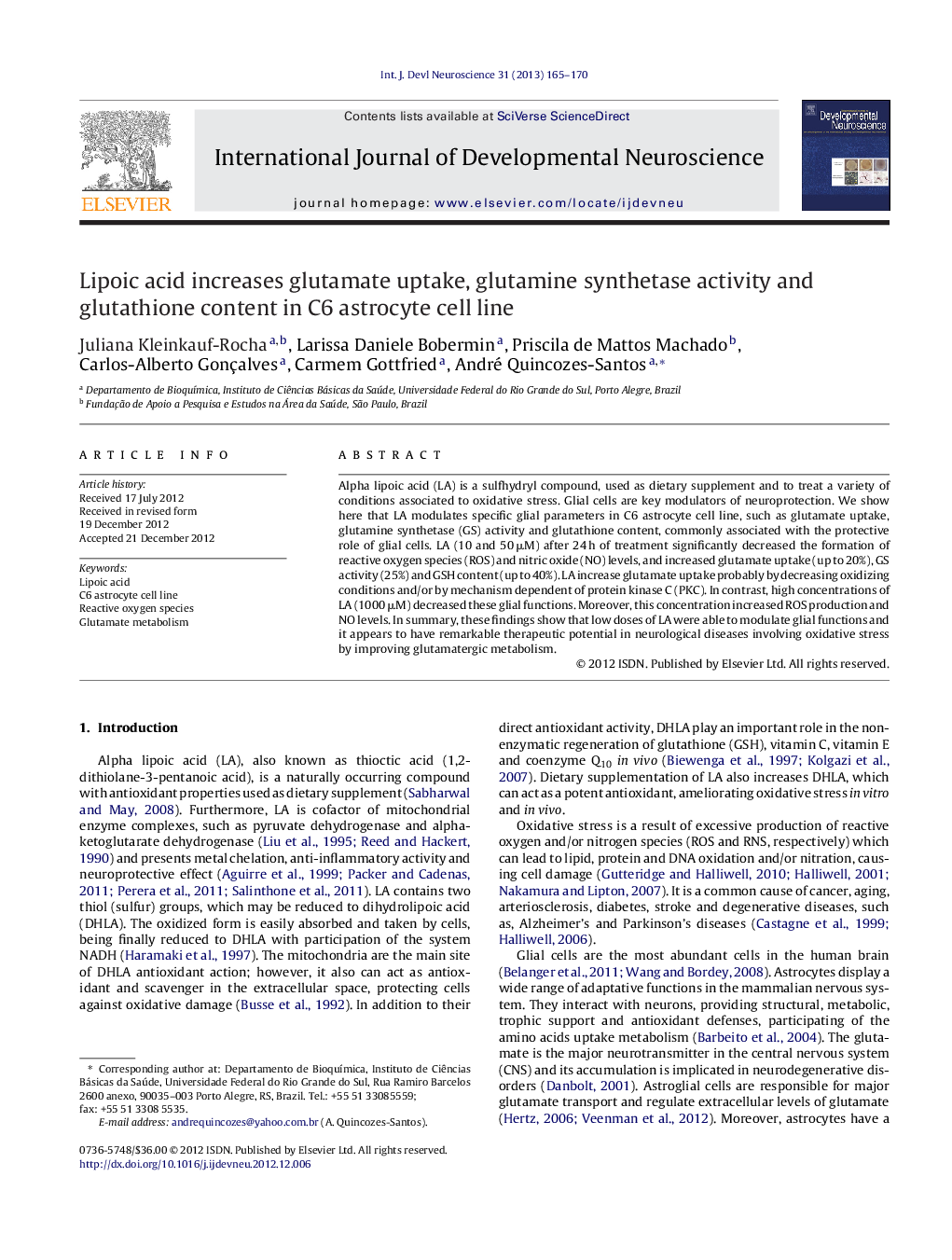| Article ID | Journal | Published Year | Pages | File Type |
|---|---|---|---|---|
| 2786004 | International Journal of Developmental Neuroscience | 2013 | 6 Pages |
Alpha lipoic acid (LA) is a sulfhydryl compound, used as dietary supplement and to treat a variety of conditions associated to oxidative stress. Glial cells are key modulators of neuroprotection. We show here that LA modulates specific glial parameters in C6 astrocyte cell line, such as glutamate uptake, glutamine synthetase (GS) activity and glutathione content, commonly associated with the protective role of glial cells. LA (10 and 50 μM) after 24 h of treatment significantly decreased the formation of reactive oxygen species (ROS) and nitric oxide (NO) levels, and increased glutamate uptake (up to 20%), GS activity (25%) and GSH content (up to 40%). LA increase glutamate uptake probably by decreasing oxidizing conditions and/or by mechanism dependent of protein kinase C (PKC). In contrast, high concentrations of LA (1000 μM) decreased these glial functions. Moreover, this concentration increased ROS production and NO levels. In summary, these findings show that low doses of LA were able to modulate glial functions and it appears to have remarkable therapeutic potential in neurological diseases involving oxidative stress by improving glutamatergic metabolism.
► Lipoic acid (LA) presents anti and pro-oxidant effects in C6 astrocyte cell line. ► LA modulates intracellular ROS production and NO levels in C6 astrocyte cell line. ► LA increases glutamate uptake, glutamine synthetase activity and GSH content. ► PKC inhibitor prevents the effect of LA on glutamate uptake.
